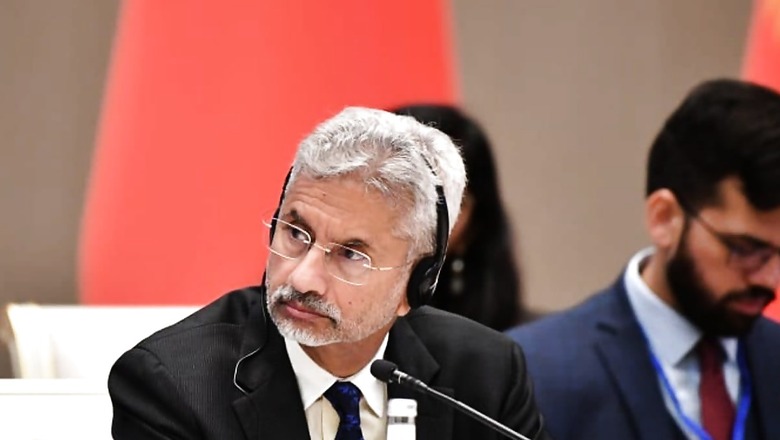
views
External Affairs Minister S. Jaishankar on Thursday took a swipe at China, saying that Beijing failed to honor longstanding agreements with India and pointed fingers at it for the border conflicts in 2020.
Speaking at the Raisina Roundtable in Tokyo, Jaishankar delved into the evolving world order, acknowledging a significant power shift in the Indo-Pacific.
“There is a reality of a very big power shift in the Indo-Pacific. When there are very big shifts in capabilities and influence and presumably ambitions, then there are all the accompanying ambitions and strategic consequences. Now, it’s not an issue whether you like it or you don’t like it. There’s a reality out there, you have to deal with that reality, he said and added, Ideally, we would assume that everybody would say, okay, things are changing, but let’s keep it as stable as we can,” Jaishankar stated.
External Affairs Minister emphasised the need to adapt to these changes and maintain stability, particularly in the face of growing capabilities, influence, and strategic consequences. Despite hoping for a collective effort to preserve stability, Jaishankar highlighted the contrasting behavior, particularly in the case of China.
Reflecting on the border tensions that escalated in 2020, Jaishankar noted, “Unfortunately, that’s not what we have seen in the last decade of our own experience in the case of China, for example, is between 1975 to 2020, which is really 45 years, there was no bloodshed on the border, and in 2020, changed, he said. We can disagree on many things, but when a country actually sort of does not observe written agreements with a neighbour, I think, you have caused … because … then raises a question mark about the stability of the relationship and frankly, about intentions.”
The border standoff in eastern Ladakh, beginning in May 2020, led to a severe deterioration in India-China relations, with the Galwan Valley clash in June 2020 marking a significant military conflict.
Jaishankar emphasised that peace in the border areas is crucial for normalising ties between the two countries.
“We see it in conflict in Europe, in disregard for international law in Asia, and in the ongoing developments in the Middle East and often in the weaponisation of the normal,” he said.
“Longstanding agreements are not being necessarily observed, raising question marks about the stability of the environment in which we all operate,” he said, referring to the 1993 Border Peace and Tranquillity Agreement (BPTA) and the 1996 agreement on Confidence Building Measures in the Military Field Along the Line of Actual Control in the India-China Border Areas.
Answering a question after his speech, he said, “That is why for India, in a changing world, our own equilibrium, our own balances with other countries are changing as well. They don’t have to be acrimonious, but the balance is changing.” The External Affairs Minister had on March 2 in Delhi raised a similar point while speaking at an interactive session of a think tank. China must adhere to border management pacts and there has to be peace and tranquillity along the Line of Actual Control (LAC) for improvement in Sino-India ties, Jaishankar asserted amid the lingering military face-off in eastern Ladakh.
(With inputs from PTI)

















Comments
0 comment